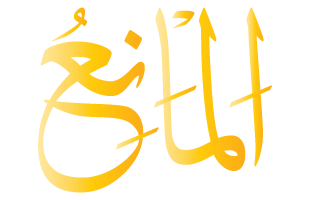AL-MANI MEANING - 99 NAMES OF ALLAH:
﷽
Al-Mani
(The Withholder)
Al-Mani Meaning:
The Shielder, The Protector, The Preventer.
Allah سُبْحَٰنَهُۥ وَتَعَٰلَىٰ is Al-Mani (in Arabic: ٱلْمَانِعُ). There is no one to give what he's withheld or to prevent what He gives. He protects people from harmful situations and prevents undesirable actions. All is done according to His infinite wisdom and mercy.

Mentions of Al-Mani:
From Quran & Hadith
Arabic Root:
From the root mim-nun-ayn (م ن ع), which has the following classical Arabic connotations: to prevent, hinder, hold back, restrain, deny, impede, resist, forbid, refuse, prohibit, to guard, defend, or to protect.
Among the disputed names:
The name of Allah, Al-Mani, The Protector. As we've mentioned in previous names, different scholars have different criteria for what qualifies as a name of Allah سُبْحَٰنَهُۥ وَتَعَٰلَىٰ. Of the 99 names, 81 are explicitly mentioned in the Qur'an. Therefore, there is not one agreed-upon list for the remaining 18 names. Al-Mani is one of those names that certain scholars do not include. This list includes Ibn al-Wazir, Ibn Hazm, and Ibn al-Uthaymeen, among others. However, others, such as Ibn Arabi, Imam al-Bayhaqi, and al-Ghazali, have included this name in their lists.
Al-Mani is the one who gives and the one who withholds. When He gives, nothing can come in its way to prevent it. If he decides to withhold, no one can substitute and give it instead. Al-Hafeedh (The Protector) and Al-Qabid (The Restricting) are similar in meaning to this name. As we mention in the name Al-Qabid, Allah سُبْحَٰنَهُۥ وَتَعَٰلَىٰ can give and prevent for whomever. Whatever Allah سُبْحَٰنَهُۥ وَتَعَٰلَىٰ wills is good since it's from Him. He can dispose of His dominion however He wishes. It is not up to us to judge whether a thing is good or bad. And He's not limited in what He can do; this goes back to the attributes of power, control, and supreme authority. He is Al-Wahhab (The Bestower of Gifts) and the opposite in meaning Al-Mani (The Preventer). However, the name Al-Mani can also connotate positive prevention with His infinite wisdom, judgment, and mercy. His withholding is a defense or a shield from what we do not know.
Maaa afaaa'al laahu 'alaa Rasoolihee min ahlil quraa falillaahi wa lir Rasooli wa lizil qurbaa wal yataamaa walmasaakeeni wabnis sabeeli kai laa yakoona doolatam bainal aghniyaaa’i minkum; wa maaa aataakumur Rasoolu fakhuzoohu wa maa nahaakum 'anhu fantahoo; wattaqul laaha innal laaha shadeedul-‘iqaab
English Translation:
"And what Allah restored to His Messenger from the people of the towns – it is for Allah and for the Messenger and for [his] near relatives and orphans and the [stranded] traveler – so that it will not be a perpetual distribution among the rich from among you. And whatever the Messenger has given you – take; and what he has forbidden you – refrain from. And fear Allah; indeed, Allah is severe in penalty." — (Qur'an 59:7)
Innal laaha yudaafi anil lazeena aamanoo; innal laaha laa yuhibbu kulla khawwaanin kafoor (section 5)
English Translation:
"Indeed, Allah defends those who have believed. Indeed, Allah does not like everyone treacherous and ungrateful." — (Qur'an 22:38)
Du'a of Prophet Muhammad ﷺ:
Narrated by Warrad: (the clerk of Al-Mughira bin Shu`ba), Once Al-Mughira dictated to me in a letter addressed to Muawiya that the Prophet (ﷺ) used to say after every compulsory prayer: [1]
La ilaha illa l-lahu wahdahu la sharika lahu, lahu l-mulku wa lahu l-hamdu, wa huwa 'ala kulli shay'in qadir. Allahumma la mani'a lima a'taita, wa la mu'tiya lima mana'ta, wa la yanfa'u dhal-jaddi minka l-jadd
English Translation:
"There is no Deity but Allah, Alone, no Partner to Him. His is the Kingdom and all praise, and Omnipotent is he. O Allah! Nobody can hold back what you gave, nobody can give what You held back, and no struggler's effort can benefit against You"
Amman haazal lazee yarzuqukum in amsaka rizqah; bal lajjoo fee ‘utuwwinw wa nufoor
English Translation:
"Or who is it that could provide for you if He withheld His provision? But they have persisted in insolence and aversion." — (Qur'an 67:21)
Reflection:
When we think about Allah سُبْحَٰنَهُۥ وَتَعَٰلَىٰ we are in no position to expect or demand anything. We have no authority or right to demand that we get all that we desire. Just like a father or mother who withholds things from a child, it is out of compassion and wisdom.
We must remember whatever the mind focuses on is what we'll notice. We can look to see the many blessings already bestowed by His quality of being Al-Khaliq, Al-Wahhab, and Ar-Razzaq. He created us, gave us the gift of life, and continues to provide sustenance in every moment. In death, we are reminded, inna lillahi wa inna ilayhi raji'un "to Allah we belong and to him we shall return." We may be independent in our actions and responsibilities, but we belong to Allah سُبْحَٰنَهُۥ وَتَعَٰلَىٰ, and we exist under His dominion and rule.
In times of difficulty, practice sabr (patience), and Allah سُبْحَٰنَهُۥ وَتَعَٰلَىٰ will reward you for how well His servant responded to the adversity. Ask yourself a simple question, how would The Prophet ﷺ respond to this happening? In studying His biography, sayings, and teachings, we can try and approximate to the best way we should react to certain events. And remember, there is always some reward you can gain from either situation.
References:
[1] Sahih al-Bukhari 844

